I can’t tell you how long I’ve been waiting for Phoenix Wright to make an appearance on PC, in one form or another. The off-beat investigative adventure series first came to the west in 2005 via the Nintendo DS, and since then we’ve had a whole host of sequels and spin-offs. And yet, despite ports to Android and iOS, the spiky-haired defense attorney has never appeared in PC courtrooms until this release of Phoenix Wright: Ace Attorney Trilogy. Truly objectionable.
Opening Statements
Let’s make a few things clear. First, the Ace Attorney games are most commonly described as visual novels, but don’t let that put you off. While there’s a lot of reading involved, there’s much more to the gameplay than going through text and making a decision every 15 minutes. There are more significant similarities to point-and-click adventures than anything else, if only because of the amount of puzzling you’ll be doing.
Second, while there are many more than three games in the Ace Attorney series (six in the main series and five spin-offs, not all of which have been released in the west), Ace Attorney Trilogy is a complete package. The three games included here constitute the entirety of the series’ first trilogy, so there’s a very complete story and set of character arcs here.
Third, it’s funny. Legitimately funny. The Ace Attorney series boasts one of the most impressive localizations I’ve ever seen.
The Background Of The Case
Phoenix Wright: Ace Attorney Trilogy casts you as the titular Phoenix Wright, a novice defense attorney in a criminal justice system stacked heavily in favor of prosecutors. Because of a staggering backlog in court cases, once a person is arrested and charged, their trial takes place the next day. Not only that, but trials have a maximum of three days. “Innocent until proven guilty” doesn’t have much of a place here, and there’s no jury. Everything is down to the whim of the judge.
Defense attorneys are usually forbidden from interfering with crime scenes (read: investigating). This heavily limits their information and ability to present evidence or call witnesses. Oh, and the prosecutors regularly falsify evidence and employ all sorts of underhanded tactics to get convictions.
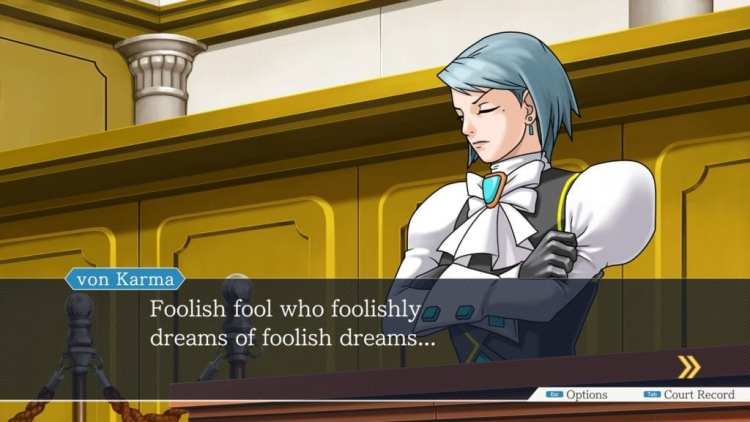
This particular prosecutor likes to bring her whip to court. And will use it on you, the judge, the witnesses…
Basically, defense attorneys are boned. If memory serves, this is a satirical poke at parts of the actual Japanese law system, but discussing all that would take a whole other article.
Either way, this means that Phoenix (and thus, you) is always on the knife’s edge of losing a case. All you can do is investigate to the best of your abilities and then – in court – poke holes in testimonies, present evidence to prove contradictions, and do your damnedest to figure out who really dunnit. And some of these cases are so convoluted and seemingly impossible that Hercule Poirot would burst a few brain cells trying to figure them out, so good luck. Especially when Phoenix has to bluff his way through almost everything in an attempt to work out what’s going on.
Initial Investigation
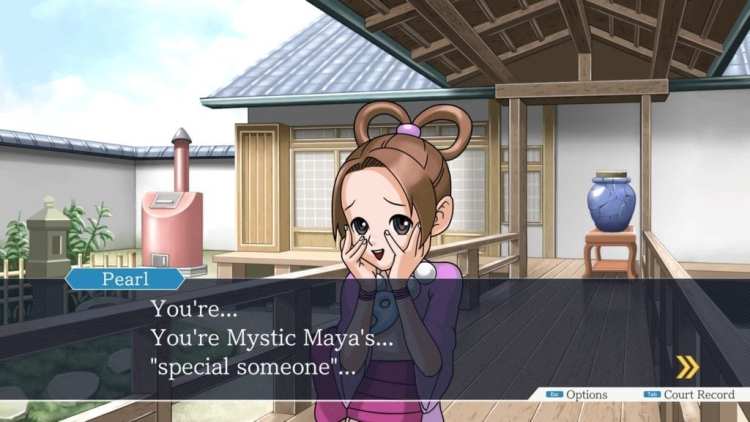
I would like it entered into evidence that, while kids in videogames are usually annoying and terrible, Pearly is great.
Gameplay itself is roughly divided into two sections: investigation and trial. Investigation is the less interesting bit as you try to find some background for your defense. You’ve got a basic interface for moving around the beautifully drawn locales, chatting to a motley crew of kooky characters, and possibly prodding them with inventory items to learn more. This gets a bit more interesting from the second game onwards, where more supernatural elements come into play. There, you can “see” the locked-away secrets of those you talk to and can try to break those locks open. But still, this gameplay section is just an appetizer.
The meat of the game is in the trials. Witnesses present testimony about what happened, and you can press that testimony (that is to say, ask questions to learn more) or present evidence to contradict their claims. Eventually, you’ll hopefully unravel their lies and get to the truth of the case.
This might sound dull, but it really, really isn’t. Some of this is down to the outlandish murder cases you’re investigating, as figuring out both whodunnit and how they did it (and how to prove it) is a treat. The rest is down to the absolutely superb localization and the ridiculous characters you’ll be cross-examining, as well as the game’s absurd style.
Style On Trial
Cross-examinations begin with a loud thump as the words CROSS-EXAMINATION appear on screen, more reminiscent of a fighting game declaring the start of round one than a courtroom drama. A defendant being found not guilty results in a rain of confetti. When a heated claim is made, the music swells as the game shows a close-up of the character’s face, complete with a rushing anime background. It’s ridiculous in the best way possible.
As for the characters themselves, that’s where the localization comes in. The entire game is a barrage of puns and jokes, all of which have been seamlessly translated and fixed to make sense to a western audience.
Expect to be cross-examining an overly talkative old lady named Wendy Oldbag, the trenchcoat-wearing detective Dick Gumshoe, the egotistical Luke Atmey, and oh-so-many more. One character speaks exclusively in leet-speak, to the bemusement of our protagonists. Be careful when it comes to pressing the testimony of Moe the clown, though (real name Lawrence Curls – he’s a bit of a stooge). If you give him the opportunity to make a bad joke, the court won’t look kindly on you. Oh, and your assistant is a teenage spirit medium who occasionally summons her deceased sister to help you out.
I can’t express enough admiration for just how well localized this is. Remember: it’s a Japanese series, but the western releases are a flurry of pop culture references and bits of wordplay that don’t seem even remotely out of place.
Despite this, Ace Attorney Trilogy isn’t without its somber and darker moments. This is a game about investigating murders, after all. Some of the killers are genuinely unnerving despite how hyper-exaggerated everything is. There’s some real drama here, and it’s all balanced nicely with the humor.
A Method For Murder
I’d love to talk details about the murder cases and the puzzles, but most of them are too good to spoil. Phoenix Wright: Ace Attorney Trilogy is full of “a-HA!” moments when you finally figure out how to break a witness. While earlier cases are simple enough, the later cases in each title are lengthy, in-depth, and will require some serious brainpower.
The one major flaw is that the games can be nit-picky about what you have to present and when. This re-release seems a lot better about this, thankfully. But there are still moments when you’ll present evidence that makes perfect sense to you, and yet the game won’t acknowledge it and will slap you with a penalty. It’s the nature of this sort of thing, unfortunately – you’ll occasionally figure something out long before the game expects, or present something that should work but isn’t the best fit. This definitely isn’t a regular occurrence, but it can throw you off once or twice.
Closing Arguments
The fact that Capcom has packaged these games as a trilogy is both a good and bad thing. You’re getting a staggering amount of content here: the 14 cases included should last you a good 30 hours if you haven’t gone through them before.
That said, trying to play through all of them in a row is going to be a wearying task. After finishing one game in the series, I’ve usually been quite content to wait for the next. There’s also some varying quality between games and cases. The second game is probably the weakest of the bunch, though each title has at least one dud case.
But when you’re presented with this much content of such high quality, complaining that some of it isn’t as good as the rest is churlish at best. If you’ve any interest in bizarre murder mysteries or brain-bending puzzles that might require some out-of-the-box thinking, Phoenix Wright: Ace Attorney Trilogy is a must.

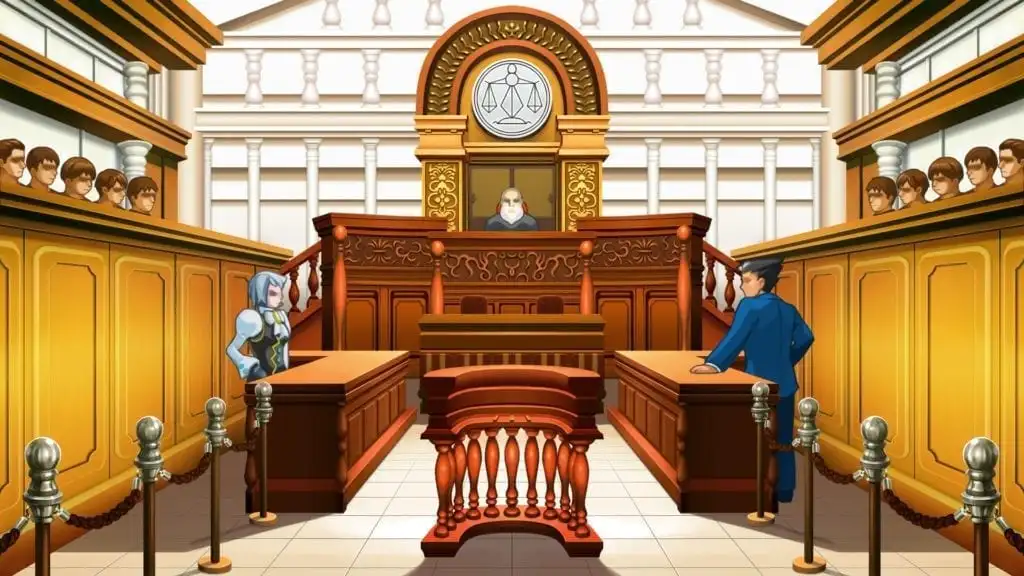

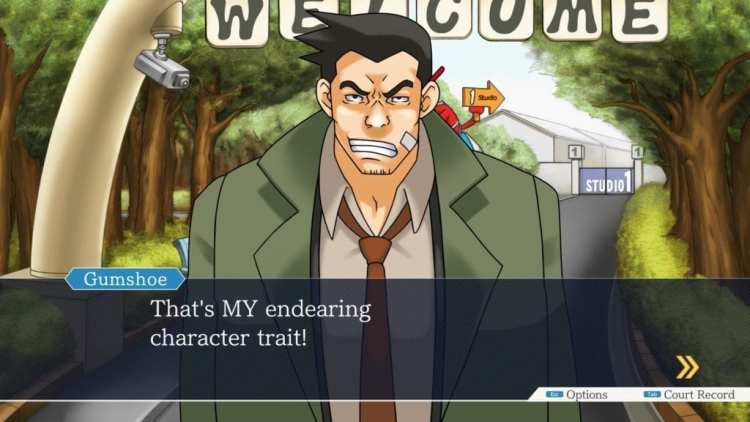
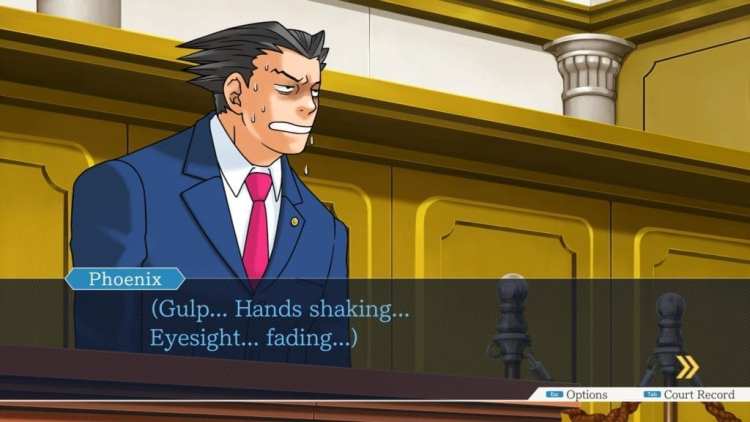
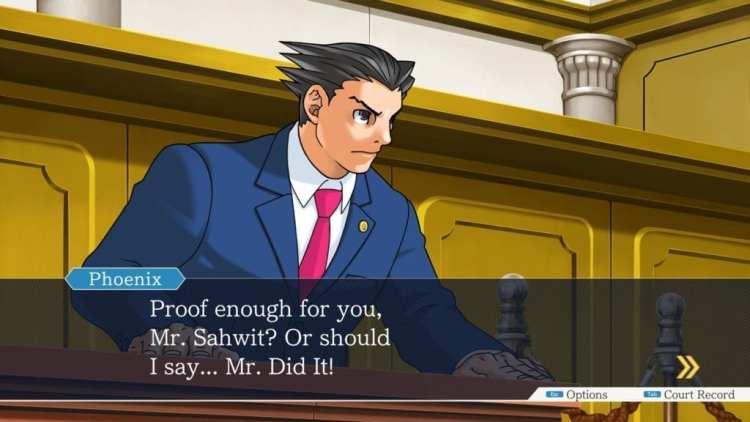
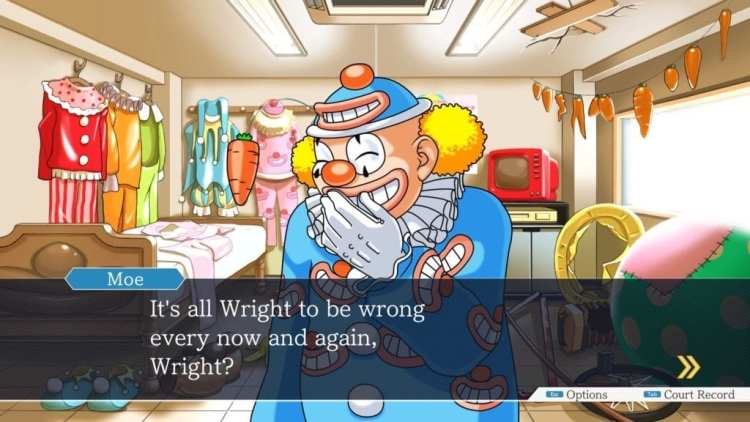
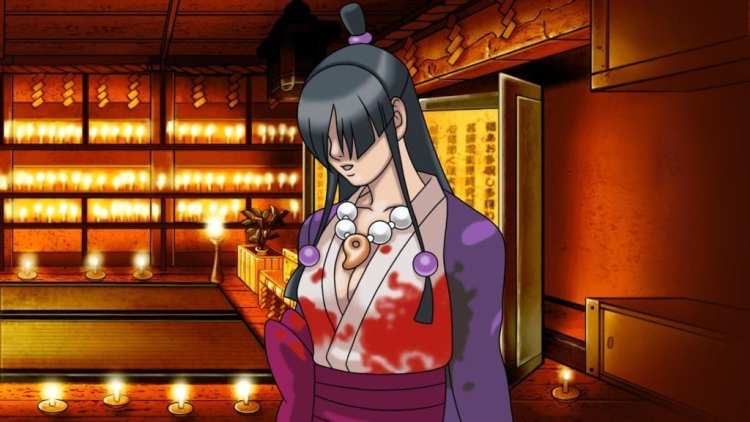
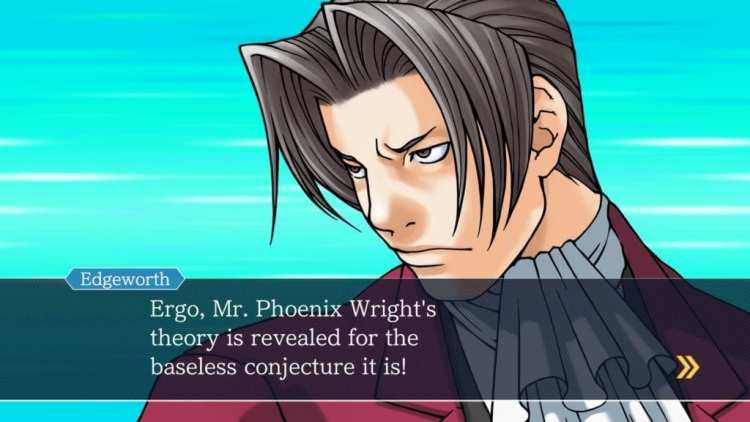





Published: Apr 9, 2019 03:41 pm